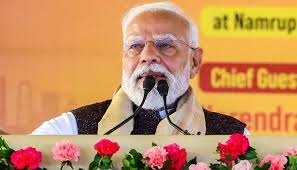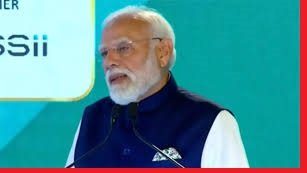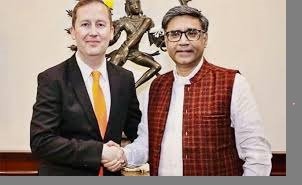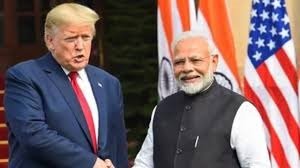India-Russia Relations Enter a New Phase Amid Global Realignments
DELHI I Economy India: In a major diplomatic development, National Security Adviser Ajit Doval confirmed that Russian President Vladimir Putin will visit India later in 2025, marking a pivotal moment in the two countries’ strategic relationship. The visit—likely to occur before the year-end—comes amid a complex international landscape shaped by geopolitical realignments, energy transitions, and global economic turbulence.
This high-level engagement reaffirms India’s commitment to a multipolar global order and its longstanding ties with Moscow, even as it maintains strategic partnerships with Western nations.
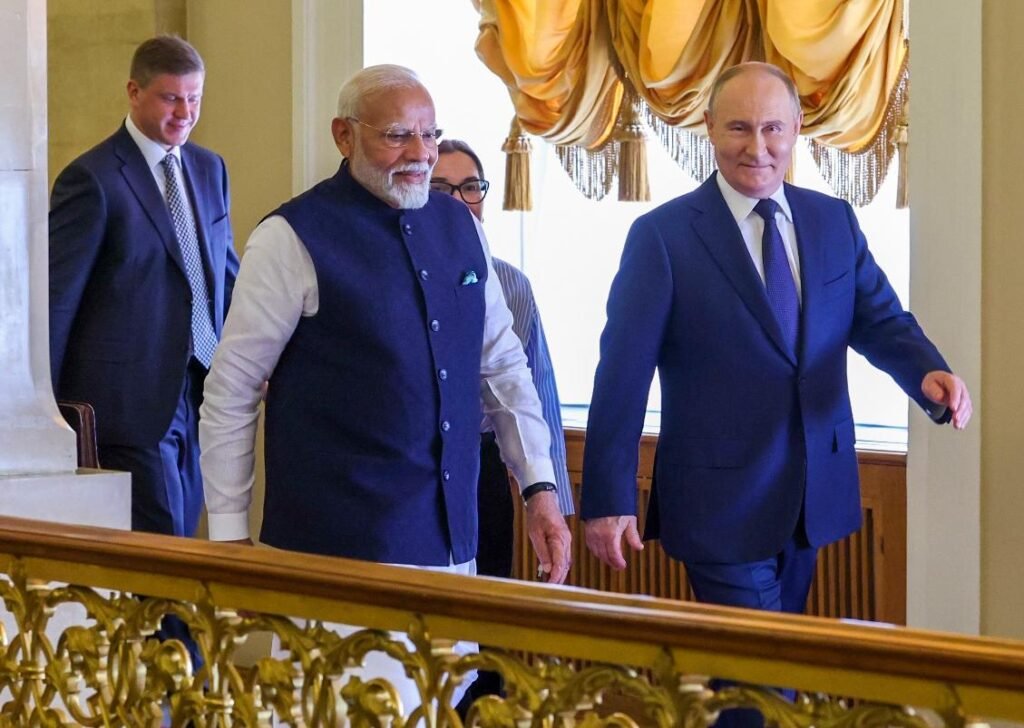
Why This Visit Matters
President Putin’s planned visit is his first in over five years and follows a period of significant global disruptions—from the war in Ukraine to a new Cold War dynamic between the West and the Russia–China axis. India has tactfully maintained neutrality while enhancing its economic cooperation with Russia, particularly in energy imports, defense equipment, and fertilizer supplies.
Putin’s arrival in New Delhi is expected to reset bilateral priorities and may include major announcements on nuclear cooperation, energy pipelines, payment settlements, and space collaboration.
Strategic Timing: A Calculated Move
The timing is critical.
- India is heading into a high-stakes Budget Session in early 2026.
- Russia seeks to strengthen Asian alliances amidst continued sanctions and reduced trade with the West.
- Global observers view this visit as a potential counterbalance to China’s growing assertiveness in South Asia.
Key Areas Likely on the Agenda
Energy Security
India has emerged as one of the largest buyers of discounted Russian crude, paying in a mix of rupees, yuan, and UAE dirhams. A long-term energy corridor agreement is being speculated, possibly including Arctic oil investments and pipeline feasibility studies.
Defense Cooperation
Russia remains a top supplier of military hardware to India, though diversification has begun. Talks may focus on:
- Co-development of 5th-generation fighter jets
- Joint production of AK-203 rifles
- Progress on S-400 missile systems
Currency & Payment Mechanisms
With Western banking restrictions still in place, the two nations are likely to explore rupee-ruble trade mechanisms, alternative payment channels, and integration into digital currencies for cross-border settlements.
Geopolitical Cooperation
Expect renewed dialogue on:
- BRICS expansion
- SCO framework evolution
- Peace in Central Asia and the Indo-Pacific
India’s Balancing Act
India’s foreign policy has demonstrated remarkable strategic autonomy. While maintaining ties with the U.S., EU, and Japan through QUAD and trade agreements, India has not joined Western sanctions against Russia.
This multi-aligned posture has allowed India to benefit from affordable energy, fertilizers, and defense support, all while safeguarding its national interests.
What It Means for the Economy
| Sector | Likely Impact |
|---|---|
| Energy | Secure long-term supply, better pricing, rupee trade |
| Defense | Joint manufacturing, tech transfer boost |
| Trade | Diversification of export markets and payment options |
| Geopolitics | Strengthened voice in multilateral forums |
India’s current account deficit could also benefit if rupee-denominated trade continues, easing forex pressures.
Opposition & Western Response
While India’s global partners have largely respected its Russia policy, any new energy deals or defense pacts may invite scrutiny from Washington and Brussels. However, with India being a key Indo-Pacific counterweight to China, major fallout is unlikely.
President Putin’s upcoming visit could mark a decisive turning point in Indo-Russian relations. As the global economic order shifts, India is actively shaping its place as a strategically autonomous, economically pragmatic power.
This visit—if successful—will signal not just continuity, but a renewed partnership, one that blends historical trust with evolving economic priorities.
(Economy India)






